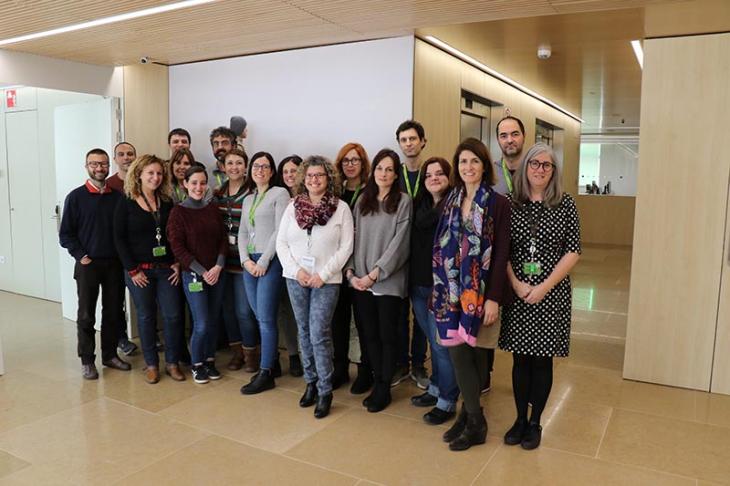18 Jan | 2019
BBRC performed 893 visits for the EPAD project in 2018

EPAD team at BBRC
2018 was an intense and hectic year for the research and operations team of the Barcelonaβeta Brain Research Center (BBRC), in regard to the European Prevention of Alzheimer’s Dementia (EPAD) project.
The team performed 893 visits in 2018 to nearly 200 Spanish research participants enrolled in the project, and a total of 118 lumbar punctures and 208 MRI. “The EPAD Longitudinal Cohort Study is the most complex observational study we have at BBRC, and specific procedures have been designed accordingly. These numbers of 2018 have only been achievable by the intense effort and motivation of our team”, says Karine Fauria, head of Scientific Management at BBRC, who also highlights that “the team knows personally each research participant and adapts the visits to their needs”.
BBRC is currently the EPAD top recruiter study site in Europe, with nearly 230 research participants visited, out of more than 1,300 research participants recruited for the project in 21 European study sites.
José Luis Molinuevo, EPAD WP1 co-lead and scientific director of the Alzheimer’s Prevention Program at BBRC, explains that “the EPAD consortium is advancing towards creating a trial infrastructure that will allow performing proof of concept adaptive trials for the prevention of AD dementia being almost ready to launch it; we are obviously very happy to have been part of it from the very beginning and committed to keeping in contributing for its success”.
In 2018, BBRC also hosted the meetings of the EPAD Participant Panel of Barcelona, composed of 8 research participants who represent and ensure the interests of the Spanish participants in the project.
EPAD has received support under grant agreement number 115736 from the Innovative Medicines Initiative, which is a joint initiative of the research and innovation program of the European Commission Horizon 2020 and the European Federation of Pharmaceutical Industries and Associations (EFPIA).











